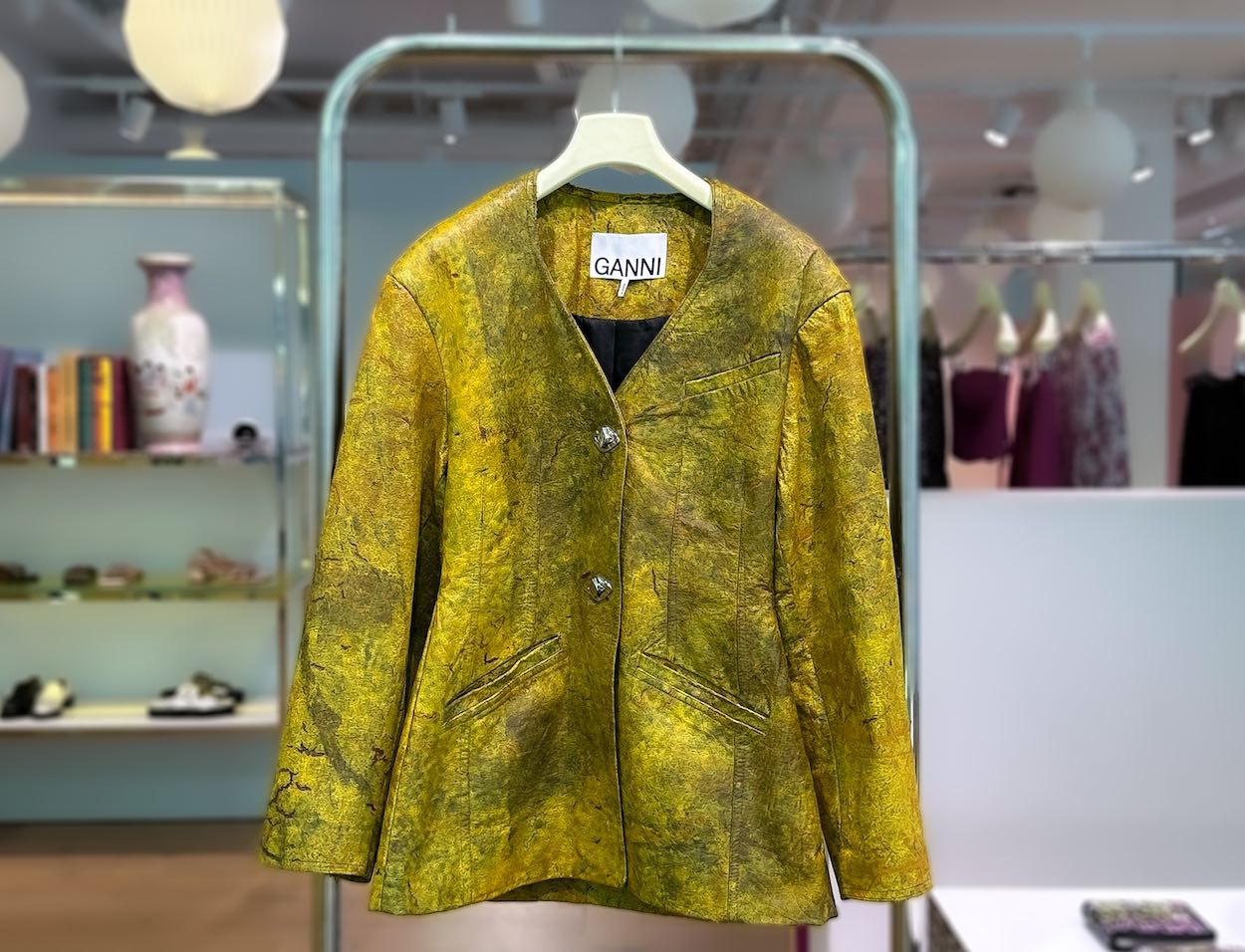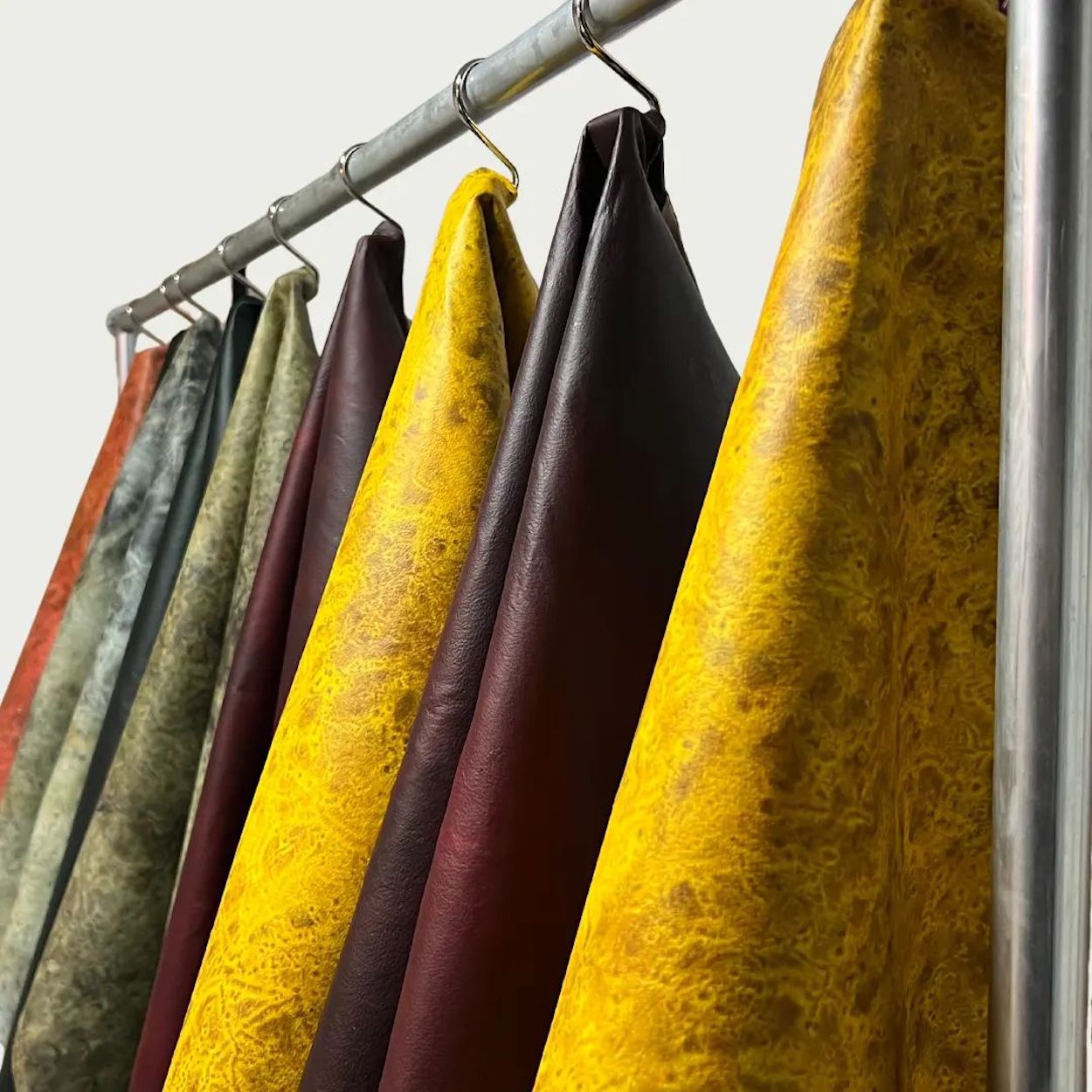The cult Danish fashion brand beloved by art-world types and the street-style set turned industry heads in 2021 when it pledged to phase out the use of virgin leather by 2023. The pledge raised a few eyebrows given that a fifth of the label’s 2020 sales came from leather goods alone. At this summer’s Global Fashion Summit in Copenhagen, the label made a bold proclamation for its post-leather future by unveiling an ugly-chic chartreuse blazer made from bacteria-grown cellulose “leather.”
According to biomaterials lab Polybion, which worked with Ganni to create the garment, more than a decade of research went into developing the leather-like textile dubbed Celium. Not to be confused with mycelium-based faux leathers, this prototype was made by feeding agricultural mango waste to a bacteria colony, which then created cellulose from the sugars it digested. After undergoing further treatment, the cellulose was processed and tanned similarly to animal leather. In a statement, Polybion shared that it’s working with Ganni to have consumer-ready Celium garments available in 2024.
In an interview, Gómez-Ortigoza claims Celium already outperforms mycelium-based imitation leathers and is “about 80 percent of the way [there] compared to animal leather. There’s still a road to walk to outperform animal leathers. This will be achieved by a steady learning and improvement cycle of the stabilization process, the growth process, and via gene-tuning of the [bacterial] strains.”
Much like lab-grown meat, bacteria-grown “leather” has long been the stuff of lore, its potential exalted in scientific circles with questionable commercial viability. A single prototype is hardly ready for retail, but according to Polybion co-founder Axel Gómez-Ortigoza, it’s the first garment of its kind to be showcased by a multinational brand like Ganni. Still, Celium has its shortcomings, the biggest involving the use of a controversial petrochemical-based coating, polyurethane (PU). Beloved by fast fashion for making faux leather products cheap to produce, PU played a key role in the downfall of the Higg index, which categorized the petrochemical-based textile as more sustainable than fabrics of natural origin.

